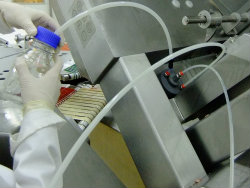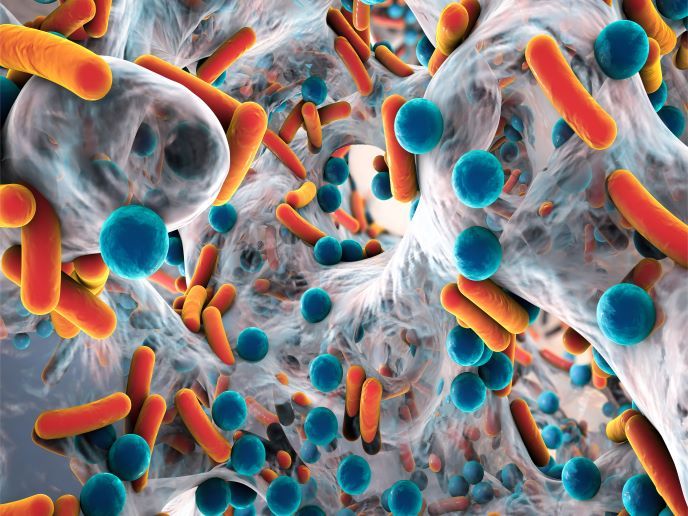Faster detection of food-poisoning bacteria
Pathogenic bacteria are responsible for 90 % of reported food-borne illnesses. One of the most important is Listeria monocytogenes. This causes listeriosis, an infection that can kill vulnerable people such as the elderly, pregnant women and those suffering from immuno-compromising diseases. Conventional techniques for the detection of Listeria are limited in their effectiveness due to the formation of biofilms, extensive treatment times and limited sensitivity of measurement techniques. The BIOLISME(opens in new window) project developed new tools for monitoring the pathogen on surfaces in production environments. They were used to monitor the contamination levels in industrial food-processing plants in a faster, safer and more efficient way than current tools. Project partners simulated the contamination conditions on surfaces in contact with food and how food industries deal with it. They also investigated the inoculation of L. monocytogenes free-living cells and the formation of L. monocytogenes biofilms, with particular focus on strains isolated from real food samples. The influence of various parameters such as materials, temperatures and presence of other food-borne pathogens was also studied. Scientists also built a sampling system based on compressed air technology that detached and collected L. monocytogenes cells from surfaces in food-processing environments. In addition, a detection system based on biosensor technology was developed that incorporated recent developments in immunotechnology and optics to create a faster and more sensitive system for detecting L. monocytogenes. The work conducted by BIOLISME will help quality control in industry by introducing a faster, in situ Listeria monocytogenes detection system that will enable companies to carry out effective food safety and/or cleaning regimes in a shorter period of time. It will also support the management of food outbreaks by reducing the number of infections and, in case of an alert, the reaction time. This will result in increased consumer confidence in the European agro-food industry.







